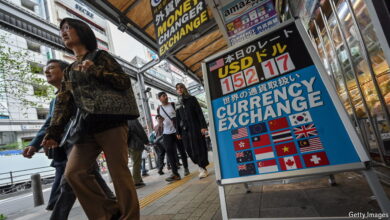Central Bank Clashes in Emerging Markets Spell Trouble for Currencies and Bonds

As emerging markets face increasing scrutiny over central bank independence, the stakes for currency and bond investors have never been higher. Recent weeks have seen the Thai baht under pressure due to a standoff between the prime minister and policymakers, while Hungary’s forint approaches a one-year low amidst ongoing clashes. Similarly, Brazil’s real and the Turkish lira experience volatility as leaders push for lower borrowing costs, signaling a worrying trend for the financial stability in these regions.
Political Pressure vs. Economic Stability
In Thailand, a dispute between the prime minister and central bank officials over interest rate cuts has placed the baht in a precarious position. Hungary faces a similar situation, with Prime Minister Viktor Orban’s contentious relationship with the country’s central bank chief contributing to the forint’s decline. These incidents underscore the delicate balance between political desires for economic growth and the central bank’s role in maintaining monetary stability. Research shows that interest rate decisions can significantly impact exchange rates in emerging markets, further illustrating the potential consequences of these clashes.
Global Implications and Investor Concerns
The repercussions of these disputes extend beyond local economies, affecting global investment patterns. As currencies in countries like Brazil and Turkey fluctuate due to political interference, the attractiveness of emerging market assets comes into question. Investors are increasingly wary of the risks posed by reduced central bank autonomy, which can lead to unpredictable policy changes and heightened market volatility. This trend not only dampens investor confidence but also raises concerns about the long-term economic stability of these nations.
The Importance of Central Bank Independence
Central bank independence is crucial for the effective management of monetary policy and the prevention of inflationary spirals. Conflicts between governments and central banks in emerging markets highlight the challenges of maintaining this independence in the face of political pressures. Experts agree that safeguarding the autonomy of central banks is essential for ensuring economic stability and attracting investment. Without it, emerging markets risk entering a cycle of devaluation and declining investor confidence, jeopardizing their economic futures.
The ongoing clashes between governments and central banks in emerging markets serve as a stark reminder of the intricate dance between political ambitions and economic necessities. As these disputes continue to unfold, the importance of central bank independence remains a critical issue for investors, policymakers, and citizens alike. The potential for destabilization and economic uncertainty underscores the need for a balanced approach to governance, one that respects the autonomy of monetary authorities while striving for sustainable growth and stability.





